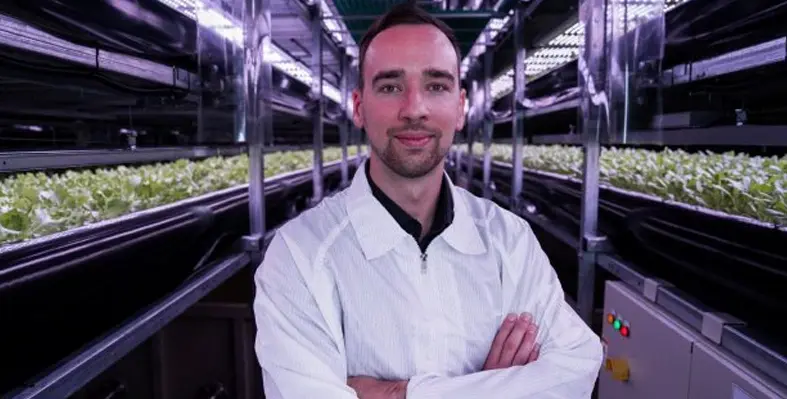With agriculture being a major driver of climate change, the European Union (EU) is promoting a green transition through continent-wide initiatives including the adoption of sustainable technology in agriculture
Through continent-wide initiatives, Vilnius, the capital of Lithuania is striving for climate neutrality by 2030. Alternative farming methods like vertical farming for example, are being adopted to help the city meet its environmental protection goals.
Valentinas Civinskas, CEO of Leafood, Europe's largest vertical farm emphasised that agricultural practices are shifting not only in Lithuania but throughout entire Europe. A number of technologies including AI-driven crop management, renewable energy integration, and sustainable water management are being adopted to enhance agriculture.
Leafood's vertical farm is located in an industrial zone of the capital and grows greens in areas that are not suitable for traditional farming methods. The presence of the farm within the urban limits enables the reduction of the supply chain and CO2 emissions. Significantly bringing down the environmental strain directly contributes to achieving the goals of the Nature Restoration Law, which aims to restore 90% of the EU's land by 2050.
“Vertical farming allows for greens to be grown in stacked layers within controlled indoor facilities. This reduces the need for vast tracts of land and alleviates the environmental strain associated with conventional farming methods,” Civinskas explained.
Leafood also uses up to 95% less water than traditional farms and 100% renewable energy to reduce the detrimental impact on the environment. Civinskas asserts that the continuous expansion of the talent pool is one of the most significant drivers in sustainable businesses, especially those operating in agriculture. For Vilnius, the supply of talent is essential for continuous innovation and emphasis on sustainability. In addition to sustainable practices, Civinskas emphasised the importance of a positive work environment.




